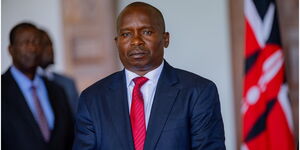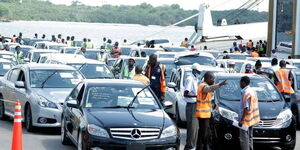President Uhuru Kenyatta espouses involving devolved units in his 'Big Four Agenda' but a majority of Kenyans have no idea what the action plan entails, a survey by Ipsos has identified.
Ipsos, in its survey findings released on Wednesday, put the progress of the president's big four agenda under scrutiny revealing that only a few Kenyans know its four tenets.
Even as the government eyes imposing an expansive taxation mechanism, the survey found more than half of Kenyans were unable to name any of President Kenyatta's Big 'Four Agenda.'
The survey conducted between July 25 and Aug 2, 2018, involved 2,016 Kenyans of 18 years or older across 46 counties.
Despite the efforts to publicise the President's ambitions for his second term, the survey discovered that over half of Kenyans (58%) appear unaware of any of the big four.
Of this number, some tried to give just any response but seventeen responses in every 100 attempts were incorrect.
Among the President's four ambitious legacy pillars, the intended provision of affordable healthcare for all emerged as the most popular among Kenyans.
In the poll findings, there was two percent of Kenyans who identified healthcare as part of the big 4.
This was followed by the creation of 1.3 million jobs including increasing the share of manufacturing jobs from nine to 15 percent.
Ipsos found that nearly no Kenyan could immediately identify food security and the provision of housing as enumerated in the big 4.
"Fewer than one-in-ten Kenyans could (spontaneously) mention the other two; increasing food production including marine products and construction of a million housing units," reads an Ipsos report compiling the findings.
Only nine in 100 respondents had an idea of investment in the country's food security while just eight of every 100 participants could relate housing units to the president's plan.
While the pollsters concede that public awareness may not be critical to the achievement of the president's legacy, they maintain that increasing such awareness would be useful given the involvement of counties.
Those familiar with the attainment of food security goals took issue with existent challenges in the agriculture sector.
In the survey, the two most frequent concerns were the high price and shortage of fertilizer coupled with the insect pests infestation that cumulatively identified by 37 percent of respondents.
These were followed by challenges to market access and climate changes and calamities as flooding emerging as a problem in the sector. This was noted by 14 percent of the sample population.












